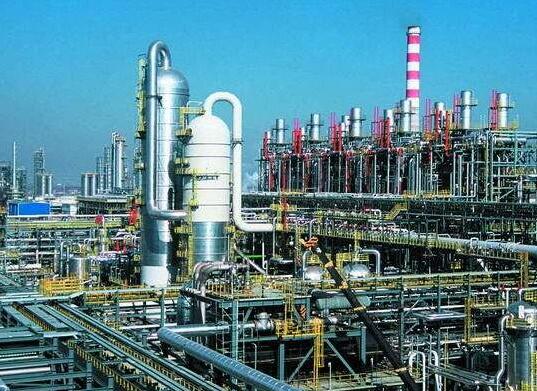Roots vacuum pump in crude oil distillation
After petroleum is extracted from the ground, it can not be used directly except as fuel. Only through the processing of petroleum refining and petrochemical industry, can it become various petroleum products and chemical products, can it be used by human beings, and can it be used by society. Petroleum refining and petrochemical industry can make petroleum become more practical products by adopting certain equipment and technology. Process.
Petroleum refining
Petroleum refining refers to the whole process of refining underground natural crude oil into various kinds of oil products. After processing, gasoline, refinery, diesel, heavy oil and other products are obtained, which become indispensable power fuels for automobiles, aircraft, tractors, diesel locomotives, ships and so on. By means of pyrolysis, catalytic reforming, steam reforming and partial oxidation, distillate oil can be made into basic raw materials of petrochemical industry, such as acetylene, ethylene, propylene, butadiene, benzene, xylene, syngas, etc. These basic raw materials can be further processed into a variety of intermediate products, such as styrene, acrylonitrile, ethylene oxide, phenol and so on. Intermediate products can produce rubber, synthetic resin, synthetic fibers and other petrochemical products.

Crude Oil Processing Technology and Equipment
First processing: for the initial processing of crude oil, crude distillation is divided into several different boiling point ranges (i.e. fractions). The processing device is atmospheric distillation or atmospheric and vacuum distillation.
Second processing: For the deep processing of crude oil, the fractions from the first processing will be processed into commercial oil. Its processing units are catalytic cracking, hydrocracking, delayed coking, catalytic reforming, visbreaking and so on.
Dry gas oil in gas and oil products, if it contains very little water, will make its color turbid and not bright, greatly reducing the commercial price of products. But if the gas is extracted from the distillation unit and then passed through a vacuum drying tower of only 37-112 mmHg, the trace moisture in the gas oil can be basically removed, and the bright products can be obtained.
Furfural extraction lube oil must be refined in order to remove colloids, polycyclic short side chain naphthenes, aromatic hydrocarbons, sulfides and nitrides from lube oil. In the typical solvent refining process of liquid-liquid furfural extraction, the productivity of residual oil is over 80%~90%. The boiling point of furfural is 161.7 T and superposition occurs when the temperature is higher than 230 C. In order to avoid beneficial reaction and separate the product at lower temperature, vacuum method must be adopted: the extract containing a large amount of furfural and unnecessary components is heated and poured into the extract decompression tower (the top residual pressure of the tower is 150-200 mmHg), so that fural can be recovered, other condensates and impurities are removed, and the extract containing a small amount of furfural is heated and poured into the extract. The crushing tower recovers furfural from the top of the tower and gets refined lubricating oil from the bottom of the tower.
Solvent dewaxing of petroleum products contains more paraffin in aviation kerosene, diesel oil and light lubricating oil of petroleum products. In heavy lubricating oil and residual lubricating oil, it also contains more ground wax, sometimes up to 25%, which makes some properties and fluidity worse. In addition, paraffin and ground wax are important industrial raw materials. Therefore, paraffin and ground wax are important industrial raw materials for petroleum products. Dewaxing must be carried out.
Roots vacuum pump applications: Roots vacuum pump is widely used in single crystal furnace, ingot furnace matching, as well as coating, electrician, smelting, chemical industry, petroleum, ceramics, aviation, etc.
ZJP Roots Vacuum Pump
| Model | ZJP- 70 | ZJP- 150 | ZJP- 300 | ZJP- 600 | ZJP- 1200 | ZJP- 2500 | |
| Pumping speed(L/s) | 70 | 150 | 300 | 600 | 1200 | 2500 | |
| Ultimate pressure (Pa) |
5×10-2 (1stage piston pump as backing pump) | ||||||
| 1×10-1 (2 stage piston pump as backing pump) | |||||||
| Diff. pressure at overflow valve (Pa) | 4×103 | 2. 7×103 | |||||
| Motor rotary speed(RPM) | 3000 | ||||||
| Suitable motor power(kW) | 1.1 | 2.2 | 4 | 7.5 | 11 | 22 | |
| Flange size | inlet(mm) | 80 | 100 | 150 | 200 | 250 | 320 |
| outlet(mm) | 80 | 100 | 150 | 200 | 200 | 320 | |
| Cooling water consumption(L/h) | 120 | 150 | 200 | ||||
| Allowable temperature(℃) | 100 | ||||||
| Vacuum pump oil | 100# | ||||||
| Weight(without motor)(kg) | 110 | 205 | 265 | 780 | 880 | 1350 | |
(The article comes from the Internet. If reprinting is not allowed, please contact our company to delete it.)


